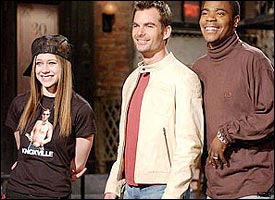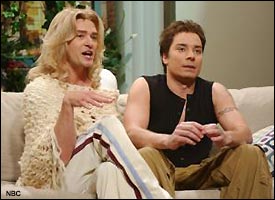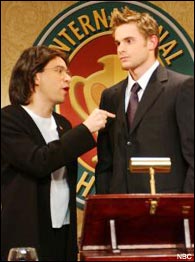| ESPN.com: Page3 |
 | |
| Jeff Gordon compared the SNL hosting experience to "The Winston-- controlled chaos." |
 | |
| Like Timberlake in a celebrity hoop game, you don't expect much from the jocks hosting SNL. |
 | |
| "Billie Jean King" dissed and dismissed Roddick in the "Battle of the Sexes II" skit with two words: Clay Aiken. |